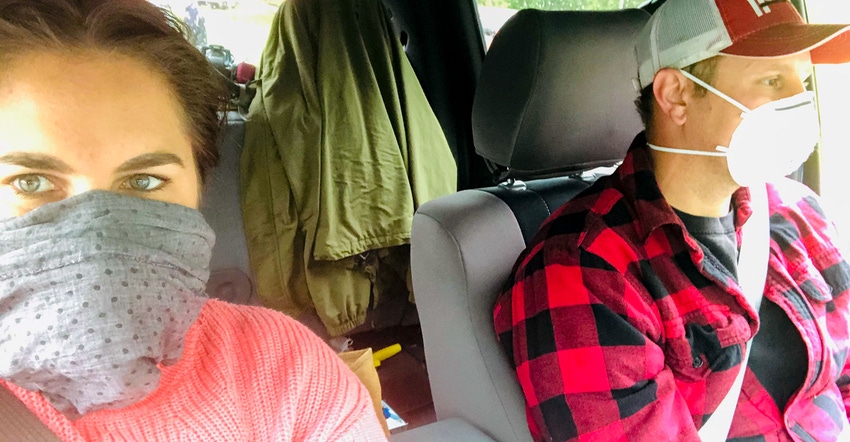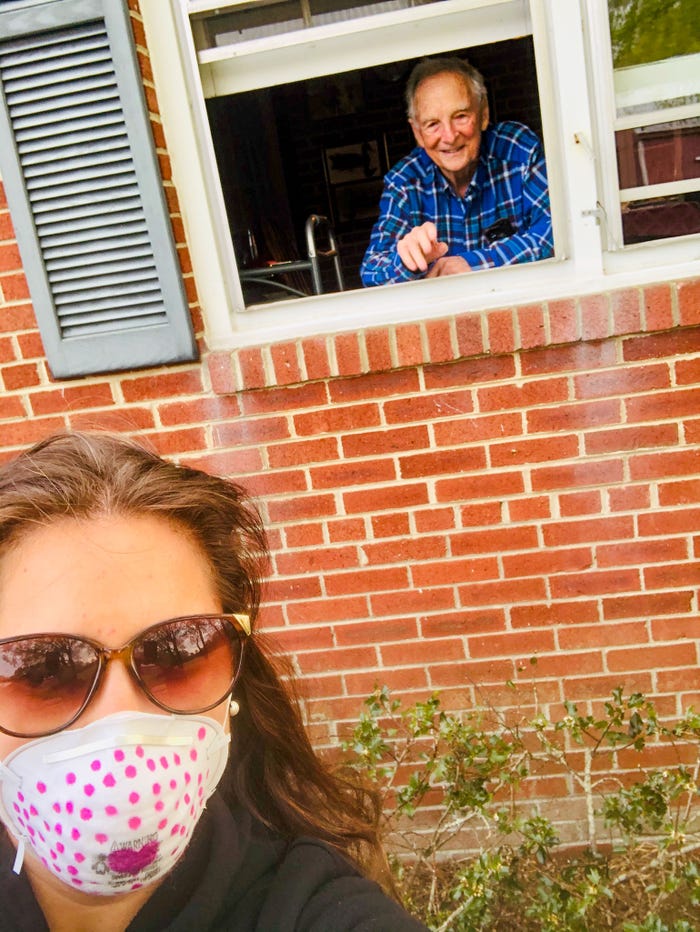April 30, 2020

Who’s wondering if we can just get a 2020 do-over?
I mean, farmers are used to uncertainty. We deal with droughts, floods, market fluctuations, family businesses and lots of other things. But none of us had any idea that a global pandemic was coming.
Or what in the heck it would look like when it did come.
But here we are. In our neck of the woods, when the stay-at-home mandate hit, we all reverted to the basics. We’re not chicken farmers but my dad decided that it was time to revive his backyard flock again, so he went out and got a new flock of layers.
He also stationed himself on the river pier in the back of the farm for the first eight days of the quarantine and brought in several hundred pounds of blue catfish, which he filleted, froze, and passed out to family and neighbors.
“If something happens with the stores, we’ll at least have catfish and eggs” he said.
My husband, Wade, who hasn’t had time to plant a garden in about four years due to the demands of the farm and his off-the-farm job, decided that, “well, if we’re going to do the apocalypse properly, we’re going to need seeds,” and we’ve now got a good-sized garden plot planted.
My mom decided that it was high time my 94-year-old grandfather — from the nonfarming side of the family — left his house in town that’s about an hour away to move in with them permanently on the farm so she could take care of him if anything happened.
In a recent phone call to my out-of-state uncle, grandad declared that my parent’s cable TV is better. It turns out that he likes being waited on. Now he’s living the high life and has no intentions of ever leaving.
 KEEPING DISTANCE: Shelby and her 90-year-old great-uncle Phil still see each other, but they’re following the social distancing guidelines.
KEEPING DISTANCE: Shelby and her 90-year-old great-uncle Phil still see each other, but they’re following the social distancing guidelines.

At least this situation is working out well for someone.
Coming together
Personally, in between stressing, praying, sanitizing, watching the news and sanitizing again, I’ve been watching the farmers and small businesses in our area and I’ve been impressed with the way they’ve handled it all.
One county took its three farmer markets, joined them as one, and created an online ordering form that includes each vendor and their products. Customers can virtually shop, submit their order, pay by credit card, and choose delivery or pickup. Pickup is once a week at one location where all the farmers bring their products and they are boxed by order, then sent out for delivery or set aside for pickup.
The pickup times are staggered, everyone wears masks and gloves, and they all follow social distancing practices. They’ve had three “market days” since then, and each has been a boom in local sales.
In fact, all the local direct-to-consumer farmers have been selling out weekly! With customers worried about the food supply, avoiding grocery stores as much as they can and yearning for some sense of control in a world that has suddenly turned upside down, many of them now want to know their nearby farmers and buy local as much as they can.
To assist with that effort — within days of the outbreak hitting and grocery stores being overrun — the Maryland Farmers Market Association and fellow nonprofit Future Harvest worked feverishly to compile an online directory that consumers can access to see where local food is being sold at farm stands, farmers markets and independent stores with local products.
The directory has over 500 locations across the Mid-Atlantic. Since launching, it has gone semi-viral with thousands of online page views, hundreds of shares and several news articles. It continues to add listings daily as other farmers sign up.
Farmers have also stepped up to the plate to help the less fortunate. Several local cattle farms got together and donated a large amount of freezer beef to the state food bank.
On the national level, the American Farm Bureau Federation is working with Feeding America and Harvest For All to connect farmers with excess products to food banks that need them.
Even the craft beverage industry stepped in to fill a gap with dozens of on-farm breweries and distilleries across the country switching production completely to make hand sanitizer, donating or selling at cost to hospitals, health clinics and first responders.
Of course, it’s not just businesses who have committed to helping. Rural women with sewing skills have filled social media feeds with thousands of much-needed masks for health care workers and the general public.
Folks across the nation are checking in on their neighbors, running errands for the elderly and doing the best they can to help out their community.
It’s people and actions and moments like these that give me hope in these tough times.
We can rest well in knowing that the farming community has each other’s backs, that we are the backbone of this country, that we’re not backing down no matter how tough it gets, and that our good deeds and our legacies will live on.
Stay safe, friends. Godspeed and God bless.
Watson-Hampton farms with her family on their fourth-generation family farm in Brandywine, Md.
Read more about:
Covid 19About the Author(s)
You May Also Like




